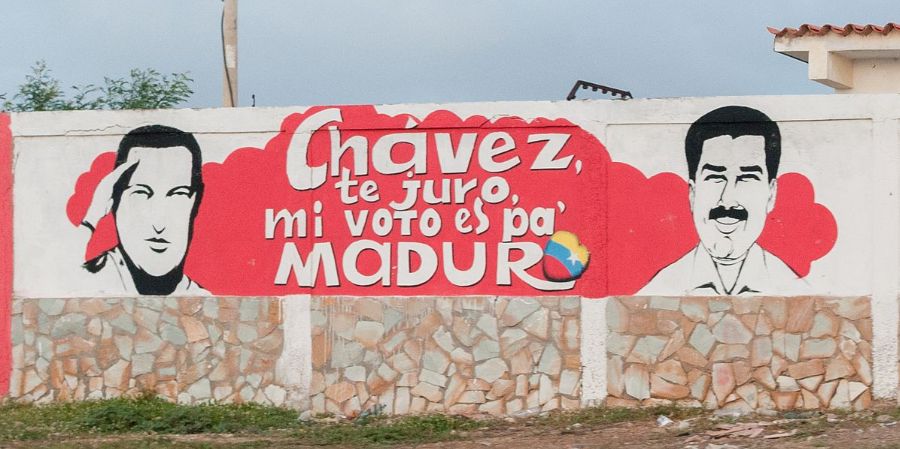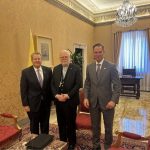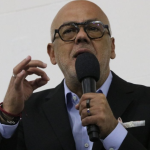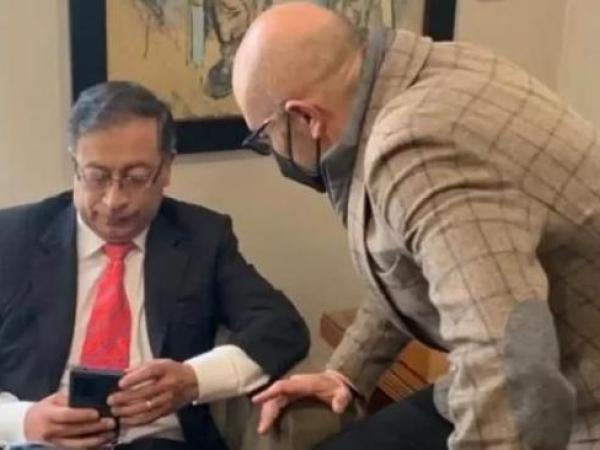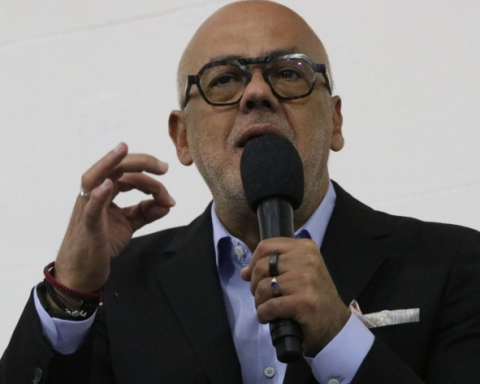HARRISONBURG, United States. – This Monday, August 19, marks 24 years since Hugo Chavez Frias was sworn in as president of Venezuela, a fact that is closely linked to current events in the sister country.
On February 4, 1992, Chávez and a group of Venezuelan Army officers attempted a coup against President Carlos Andrés Pérez. The country had been in crisis since the early 1980s due to the collapse of oil prices and the progressive increase in its public debt, events that provoked a gradual increase in popular discontent that erupted in 1989 in the rebellion known as El Caracazo.
That was the justification that Chávez and those who accompanied him used to try to carry out a coup d’état in 1992. The then rebellious military man made his ideas known in the book How to get out of the maze. If anyone might find this coincidence with the history of Fidel CastroI remember that, like the Cuban, Chávez spent little time in prison and was released thanks to a political amnesty decreed by President Rafael Caldera at the end of 1994. From then on, he dedicated himself to structuring and strengthening his Fifth Republic Movement.
One of his first activities was to visit Cuba, where he was received with honors intended for heads of state by Fidel Castro, it being obvious that the Cuban dictator, given the debacle that the Island was suffering after the disappearance of the USSR ―and from which he has never recovered― saw the former Venezuelan colonel as a plausible way to alleviate the effects of the proven ineffectiveness of his regime.
The arrival of Chávez to the presidency of Venezuela in 1998 and his subsequent victories in elections and referendums were presented to Cubans as overwhelming successes demonstrating the desire for change among Venezuelans.
In the legislative elections of November 1998, the Fifth Republic Movement, led by Chávez, obtained 22% of the votes and 35 deputies, which allowed the former colonel to launch his campaign for the presidency of Venezuela.
When Chavez assumed power on February 2, 1999, he promised to change the constitution. Two months later he called a referendum in which he asked Venezuelans if they wanted to call a National Constituent Assembly. The referendum was approved because 80% of the votes cast supported the call, but what the Castro regime did not say was that 63% of the voters abstained from attending the referendum, something that would have been enough to invalidate it. However, Chavez went ahead and a month later, in December 1999, he held the constitutional referendum in which 71% of the votes cast were in favor of a new Magna Carta. But in that referendum, the number of voters who did not express their opinion was 56%. That is, only 44% of voters went to the polls and of them, 71%, voted in favor of a new constitution, which demonstrates the political wear and tear suffered by Hugo Chávez in less than two years of presidential management.
In 2000, Chávez called for new presidential elections, and while in 1998 he had won the presidency with 56.2% of the votes, now he had 59.7%. However, as had happened in the referendums, popular participation was marked by abstentionism, since only 56% of all voters participated in those elections, a figure five percentage points away from the 63% who participated in the 1998 elections and four percentage points away from the 60% who elected Rafael Caldera in 1993.
It was from then on that Chavismo understood the cost that executive management could have at the polls. That is why they undertook the task of restructuring the Supreme Court of Justice and the National Electoral Council, placing in those institutions people totally subordinate to Chavismo. It can be said without fear of being wrong that August 19, 2000 marked the end of institutional credibility in Venezuela.
It has taken more than 20 years for the Venezuelan people to regain their hope and strengthen their desire for changes in the country’s political structure, to accept that they are the sovereign and that even within the narrow framework in which Chavismo has cornered democracy, their will can be asserted.
The cynical, scandalous and extremely crude Electoral fraud committed by Nicolás Maduro On July 28, the Venezuelan opposition received a strong and very intelligent response. The political discredit of the Chavista dictatorship only grows in the eyes of national and international public opinion, as was demonstrated by the mass demonstration held in Caracas on Saturday, August 17, and those held that same day in various cities in Latin America and Europe in solidarity with the Venezuelan people, demanding respect for the results of the elections, facts to which have been added the statements of the Carter Centerthe UNthe OAS and the European community.
When it seemed that a new electoral farce was going to triumph, the Venezuelan opposition showed conclusive evidence of the triumph of Edmundo González Urrutia, the true new president of Venezuela. They foresaw everything and prepared to demand before the world that the will of the people be respected.
Maria Corina Machado She has become a symbol of this new Venezuela, a woman who represents the courage and patriotism of all her people. She has taken it upon herself to remind us, as the lyrics of a beautiful song say, that not all is lost. Maria Corina, like all the Venezuelans who have died and the thousands who are detained in unknown places for demanding freedom, has emerged amidst so much pain and despair as a new Manuela Sáenz, although now it is not about saving one man but an entire country and, I say more, it is about saving an entire continent from the dark tentacles of Castro-communism.
OPINION ARTICLE
The opinions expressed in this article are the sole responsibility of the person issuing them and do not necessarily represent the opinion of CubaNet.
Follow our channel WhatsApp. Receive the information from CubaNet on your cell phone through Telegram.
